No one ever talks about preventing waste because it makes them feel good, so I’m here to tell you that it’s OK to talk about your feelings. In writing this story, I was surprised to discover how powerful of a motivator my feelings are in guiding how I act in the face of waste. In this journey into the depths of my psyche, I uncovered not one, but seven different feelings that surface when I recycle that soda can or tell the sales assistant to hold the plastic bag.
Pride
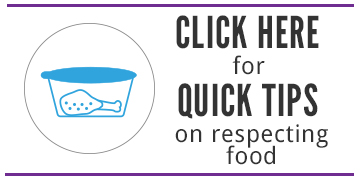 I feel proud of myself when I can creatively come up with ways to prevent waste – especially food waste because it saves me a lot of money! Living on my own, I have to find ways to make my groceries stretch further and use them up before they spoil. I always keep leftovers (even that half eaten sandwich from the deli) and find ways to incorporate underutilized food parts into my cooking like broccoli stalks, celery greens and carrot tops.
I feel proud of myself when I can creatively come up with ways to prevent waste – especially food waste because it saves me a lot of money! Living on my own, I have to find ways to make my groceries stretch further and use them up before they spoil. I always keep leftovers (even that half eaten sandwich from the deli) and find ways to incorporate underutilized food parts into my cooking like broccoli stalks, celery greens and carrot tops.
Satisfaction
I feel satisfied when I complete tasks in the most efficient way. I view paper as unnecessary and inefficient, so I make use of technology to eliminate it. I use Evernote on my laptop to take notes and keep them neatly organized in labeled “notebooks”, and if I need to highlight or annotate a document, I use Adobe Reader instead of printing. In most cases, I find that switching behaviors to ones that are less wasteful are actually more efficient and organized ways of doing things – and that’s satisfying!
Empowered!
I love knowing that I have the power to prevent things from going to waste. It may be just one coffee cup or plastic bag on any given day, but it all adds up over the course of a lifetime. Not only that, but it also sends a message to the retailers that customers are concerned, so they should rethink their practices. I always carry a KeepCup, ChicoBag and Klean Kanteen water bottle in my handbag to be prepared for any potential waste creating situation.
Individuals should feel empowered knowing that they can make decisions multiple times every day that could prevent many resources from go to waste.
Virtuous
When I live according to my morals and values, I feel virtuous. Efficient use of resources and ethical treatment of animals are things I highly value, which is why I only consume meat rarely. When I make decisions that align with my values, I feel like I am becoming a better person.
Joy
I have discovered the joy in owning less but more meaningful stuff, and try to espouse this when I give gifts to others. I try to give really meaningful gifts — gifts so meaningful, that people would never throw them away, and this brings me great joy. I like to give gifts with personal touches that don’t use up a lot of resources, like a handmade card or photo frame, a memorable experience or a batch of nicely decorated cookies. People are always so touched and grateful for these kinds of gifts, which is a joy for me.
Accomplishment
Know the feeling when you finally crack a tough puzzle, find the answer to a difficult question or finish an expert Sudoku? That’s how I feel when I figure out a way to repair, reuse or repurpose something! I never give up on broken objects until I have attacked them with a hot glue gun. I completely ripped apart my phone charger once. Most people would have just bought another for $10, but I got creative with my $5 glue gun from Michael’s and now it still works perfectly. Solving problems like these always makes me feel a sense of accomplishment.
Fulfillment
It is truly fulfilling to see other people adopt waste preventing behaviors because of me. I always try to inspire friends, family and housemates to recycle and carry reusables with them and they’ll often tell me with such excitement when they do something ‘green’ for the first time. I think they feel surprised at how easy these new behaviors are to make habits and that they actually feel good by doing them!
Preventing Waste Isn’t All About Saving Money and the Environment
![]() So now that I’ve bared my soul to you, you can see that you don’t just have to want to hug trees or pinch pennies to want to prevent waste – you just have to want to feel good. And who doesn’t want that? I know that my reusable coffee cup isn’t going to single-handedly save the world, but I keep using it because preventing waste makes me feel better, live better, and might influence more people to prevent waste too!
So now that I’ve bared my soul to you, you can see that you don’t just have to want to hug trees or pinch pennies to want to prevent waste – you just have to want to feel good. And who doesn’t want that? I know that my reusable coffee cup isn’t going to single-handedly save the world, but I keep using it because preventing waste makes me feel better, live better, and might influence more people to prevent waste too!
Do you identify with any of these? Tell me how preventing waste makes you feel in the comments below.
Posting Guideline – Stories published on WeHateToWaste.com are intended to prompt productive conversations about practical solutions for preventing waste. Please issue your comments accordingly. Opinions expressed are solely those of the contributors and implies no endorsement by WeHateToWaste.

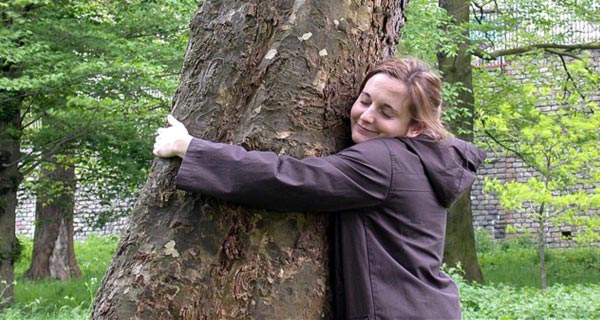
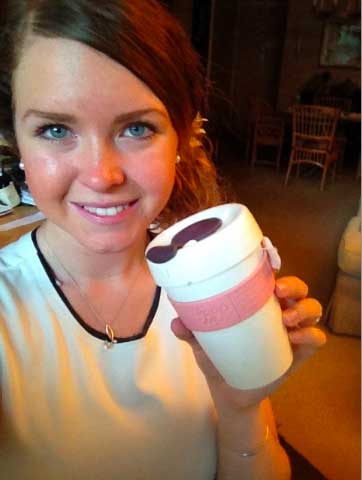
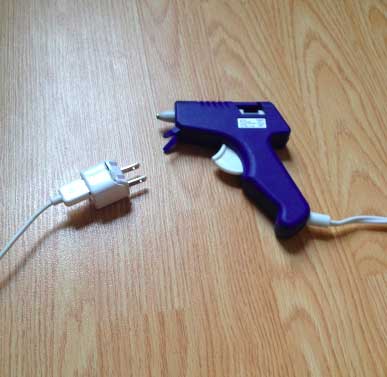
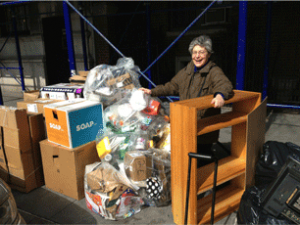
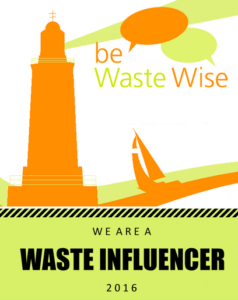
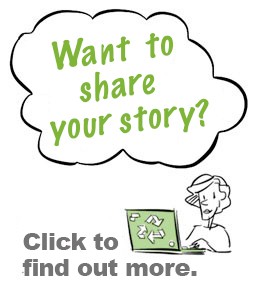
Spot on.
Not only is it good for the planet and our environment but it’s good for ourselves as well. The satisfaction at doing these littles things is rivalled by nothing else. Here’s hoping more people realise that preventing waste makes them feel good.
I’m with you on all of these things, Beth and James.
What excites me too as a real long term thinker is the potential that these little personal, ‘grassroots’ type things can ‘grow up’ one day and become integrated into the culture in the form of new products and practices. So I guess I might add “hopeful” to the list.
I couldn’t agree more with all of these things. These feelings are the kinds of things that really motivate me to continue taking small steps at preventing waste. Although we might individually not be able to accomplish a whole lot by taking the extra time to recycle responsibly, or drink out of a reusable coffee mug, collectively we can influence others to follow in our footsteps and make a big change. So, I’m with Jacquie in adding “hopeful” to my list as well.
Beth – Great post, and thanks for reminding us of the intrinsic satisfaction (and yes, joy!) that can be derived from reducing waste. Your examples and others throughout WHTW.com demonstrate the challenge and fun of being “resource-ful” instead of “resource-wasteful.” We get to solve problems, be creative, and help others, while caring for the planet and the future. Lately, I have been using Freecycle.org to find homes for unwanted items, from magazines and cell phone accessories, to office supplies and Christmas ornaments. Every time I make a match, I feel great…especially for an item that Mr. Right told me I should just throw away because no one would want it. Score one for the WHTW team!
Jacquie and Erin – yes, I feel ‘hopeful’ too! Every time I use my reusables in public, I am definitely hopeful that it will inspire others to do it too, and eventually create a larger change. It’s definitely important to talk about the significance of this kind of benefit of preventing waste because we need to address the issue of people feeling helpless in making any sort of difference in the bigger picture. Here’s hoping that we begin to see more people talking about preventing waste because it feels good!
I have found my people! Great post. BUT…it’s probably important to acknowledge that finding joy in waste prevention may be a somewhat rare virtue. Although we are not alone, it’s clear to me that some people experience waste-avoiding behaviors as drudgery. So our challenge is to help others find the joy, where possible. (And this article is a great starting point). Failing that, we must seek to understand and tap alternative intrinsic motivators for those who aren’t wired the same way as us.
I think there are powers in numbers, and I’ve witnessed people change their behavior based on external influences, that often become intrinsic after a period of time. For example, my sister and I are complete opposites. I’m the annoying “You shouldn’t waste this,” “Try a greener option,” “Let’s get creative. Maybe we could re-use this!” type of person. She often sighs and finds me to be a bit pestering. Over the past month, I’ve noticed a behavior change. She called me up excited and said something along the lines of “You’ll be so proud of me. I opted for a re-usable water bottle!” She claimed that my annoying voice in the back of her head pushed her to re-think her choices. So, one person can change another person, and soon you’ll create your own domino effect.
Rani,
I suspect you were ‘sweeter’ in your nudging than you suspect. But your persistence demonstrates the power of what the ad community would call multiple exposures: the first time someone sees a commercial on TV, they don’t really notice it. The second time, the get a slightly better idea of the point being made, and the third time, everyone says, “Oh I see what they are trying to say!”. So word to the Waste-wise: persistence is a virtue. Once is not enough!
I agree with you on all of these things. I feel really good about myself when I’ve used my purse for a small item instead of a plastic or paper bag or use my own bag for a larger amount of items. CVS used to sell green bag tags that would give $1 discount on the entire purchase for those who brought their own bag. I haven’t seen them around much anymore though.
I am in complete agreement with you. I think that living a lifestyle free of wasteful habits is very fulfilling and definitely contributes to a positive attitude. Something that you mentioned that I had not given much thought to until now is how satisfactory it when you own things based on quality and meaning rather than quantity. For instance, it is a great feeling to have pride and ownership for furniture in your home that you made or someone else made to last a long time, rather than cheap, disposable junk.
I really enjoy this article because I think the emotional motivations for sustainability comprise a strong reason for the prevalence and growth of green behavior. The personal satisfaction or fulfillment one feels when recycling or reusing stands as one of the strongest pulls for individuals to continue this behavior. While monetary and environmental impacts are just as noteworthy, such feelings provide immediate, tangible rewards our brain and body can associate with sustainable actions.
Another aspect I enjoyed about this article is learning how Beth proves sustainable in her daily life. At school, I strongly dislike printing lengthy readings for class and usually read them online. Now, I am going to use AdobeReader as Beth suggested so I am still able to reap the benefits of annotation!
I can definitely relate to all of these feelings, Beth. Thanks for exploring the non-physical benefits of reducing waste! There’s so many emotional benefits to living an eco-conscious life and you did a great job expanding on them. I especially related to and identified with you blurb about fulfillment. Personally, living an eco-conscious life gives me a lot of fulfillment and purpose and meaning to my existence. It gives me a reason to get out of bed and to interact with the world. I feel more alive when I am practicing lifestyle choices that are friendly for the planet. It’s better for the planet and it’s better for me. Its a win-win situation and I love it.